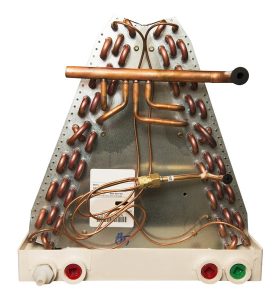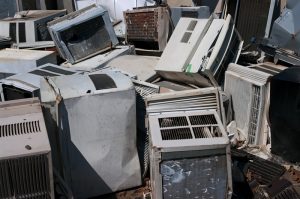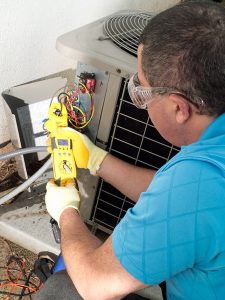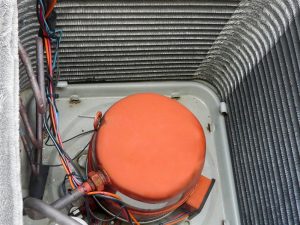 You don’t need to be an expert on the science and mechanics of air conditioning to enjoy cooling from an air conditioner, the same way you don’t have to be an electrical engineer to benefit from the lights in your house. Trained professionals exist to help you in these areas.
You don’t need to be an expert on the science and mechanics of air conditioning to enjoy cooling from an air conditioner, the same way you don’t have to be an electrical engineer to benefit from the lights in your house. Trained professionals exist to help you in these areas.
But extra knowledge of home services is always advantageous. When you understand the basics of the operation of your household cooling system, you’ll have a better idea when you need air conditioning service in Dunedin, FL.
Preamble over. Let’s examine the component at the heart of your air conditioning system: the compressor.


 If you are asking this question, it means you have reason to believe the current air conditioning system that cools your house is coming to the end of its service. People often begin to consider replacing their residential AC in the fall, right after another intense Florida summer. Maybe the air conditioner struggled to maintain proper comfort on the hottest day, the cost to run it has risen, it needed a pricy repair—or needs a pricy repair right now.
If you are asking this question, it means you have reason to believe the current air conditioning system that cools your house is coming to the end of its service. People often begin to consider replacing their residential AC in the fall, right after another intense Florida summer. Maybe the air conditioner struggled to maintain proper comfort on the hottest day, the cost to run it has risen, it needed a pricy repair—or needs a pricy repair right now. Children are heading back to school, and in a few months they’ll start bringing home report cards. But you can hand out a report card before school starts: a report card for your air conditioning system. How did it perform its job this summer? Did it sail through the season and keep those electrical bills steady? Or did it hit a few bumps along the way?
Children are heading back to school, and in a few months they’ll start bringing home report cards. But you can hand out a report card before school starts: a report card for your air conditioning system. How did it perform its job this summer? Did it sail through the season and keep those electrical bills steady? Or did it hit a few bumps along the way? An air conditioning system is manufactured to use a specific amount of chemical refrigerant. This is known as an air conditioner’s charge. People often make the mistake of thinking refrigerant is an energy source for an air conditioner. It isn’t. The energy source of an air conditioner is electricity. Refrigerant is the heat transference medium that allows the air conditioner to move thermal energy outside of the house (cooling the indoor air) and exhausting it. The refrigerant evaporates and condenses in a cycle and never dissipates—so it will never get “used up.”
An air conditioning system is manufactured to use a specific amount of chemical refrigerant. This is known as an air conditioner’s charge. People often make the mistake of thinking refrigerant is an energy source for an air conditioner. It isn’t. The energy source of an air conditioner is electricity. Refrigerant is the heat transference medium that allows the air conditioner to move thermal energy outside of the house (cooling the indoor air) and exhausting it. The refrigerant evaporates and condenses in a cycle and never dissipates—so it will never get “used up.” The compressor is the literal heart of a central air conditioning system: it’s what causes refrigerant to move through the rest of the system and transfer heat from the inside to the outside. When a compressor fails, the AC fails. The fans may still run, but no cool air will come from the vents.
The compressor is the literal heart of a central air conditioning system: it’s what causes refrigerant to move through the rest of the system and transfer heat from the inside to the outside. When a compressor fails, the AC fails. The fans may still run, but no cool air will come from the vents.